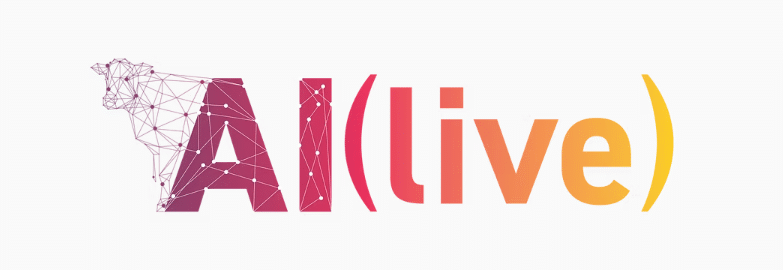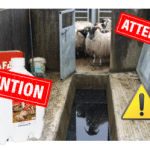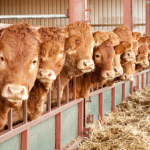Last week, some of our team had the opportunity to attend AI (Live), the UK’s first dedicated conference on artificial intelligence (AI) in livestock farming, held at the iconic Science Museum in London. The event brought together a host of professionals; farmers, vets, agri-tech innovators, policymakers, and researchers to explore how AI is transforming the livestock industry—and what the future might hold.
The conference was a vibrant mix of keynote talks, panel discussions, and live demonstrations, all centred around one theme: how AI can revolutionise livestock farming in the UK. From improving animal welfare to enhancing sustainability and streamlining operations, the potential applications of AI are certainly vast and can be a useful tool once understood and applied properly.
Artificial Intelligence in Livestock: What’s Happening Now?
One of the standout themes of the day was the real-world impact of AI tools already being used on farms across the UK. Technologies like Herdwatch, HerdVision, and VetIMPRESS are leading the charge in digital transformation.
Herdwatch, for example, is a cloud-based livestock management platform used by over 22,000 farmers globally. It allows farmers to manage herd records, breeding data, treatments, and compliance from their phone or tablet. Recently, Herdwatch launched its AI-powered assistant “Herdi”, which provides instant answers to herd-specific questions, helping farmers make faster and more informed decisions.
The platform also introduced the Enterprise Suite, a new AI-based analytics tool that connects farmers with processors and supply chain partners. This suite offers real-time insights into antimicrobial use, carbon and water efficiency, and traceability from feed to fork—all with the farmer’s active consent.
Benefits of AI in Livestock Farming
The benefits of integrating AI into livestock farming were clearly laid out during the conference:
- Improved Animal Welfare: AI systems can monitor livestock behaviour and health in real-time, detecting early signs of illness or distress. This allows for quicker intervention and better outcomes for animals.
- Enhanced Productivity: Predictive analytics help farmers anticipate issues before they arise, optimising feed, breeding, and treatment schedules.
- Sustainability: AI helps reduce waste and environmental impact by fine-tuning resource usage—whether it’s feed, water, or medication.
- Data-Driven Decisions: With platforms like Herdwatch, farmers can access performance insights and compliance data instantly, making it easier to manage operations efficiently.
What’s Next for AI in UK Agriculture?
Looking ahead, the future of AI in UK agriculture is incredibly promising. The UK is already ranked second globally for agri-tech innovation, and government initiatives like the AI Action Plan aim to embed AI across sectors by 2030.
Emerging technologies include:
- Computer Vision: Used to monitor livestock behaviour and detect diseases through video analysis.
- Robotic Herding Systems: Autonomous machines that help manage livestock movement and welfare.
- Drones and IoT Sensors: Providing real-time data on pasture conditions, animal location, and environmental factors.
- Digital Twins: Simulating farm scenarios to optimise breeding, feeding, and health strategies.
However, speakers at AI (Live) also emphasised the importance of ethical AI development. Farmers must remain at the centre of innovation, with clear standards around data ownership, privacy, and fair compensation for data sharing.
Final Thoughts
Our visit to AI (Live) was both inspiring and thought-provoking. It’s clear that AI is not just a buzzword—it’s a powerful tool that’s already reshaping how we farm in the UK. As the industry continues to evolve, collaboration between farmers, tech developers, and policymakers will be key to ensuring AI is used responsibly and effectively.
Nonetheless, it is important that farmers and professionals on the ground doing the jobs day in and day out are integral in designing the AI systems. In my opinion, the problems must be identified and studied in depth prior to AI providing the supposed ‘cure’ to ensure that AI is working for us and not instead of us. There is certainly space in the industry for such an evolution, however, I think that we should proceed with an element of caution in the effort to mitigate any upheaval down the line.
We left the Science Museum with a renewed sense of excitement about the future of livestock farming. Whether it’s through smarter herd management, improved sustainability, or better animal welfare, it is without a doubt that we will see AI play a central role in the next chapter of UK agriculture.





